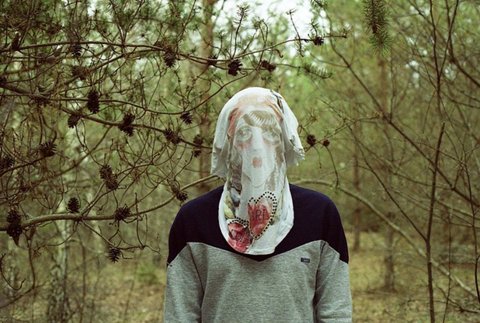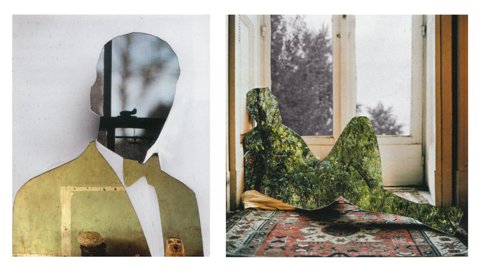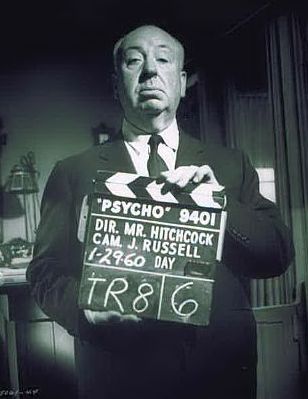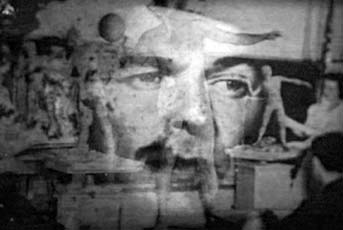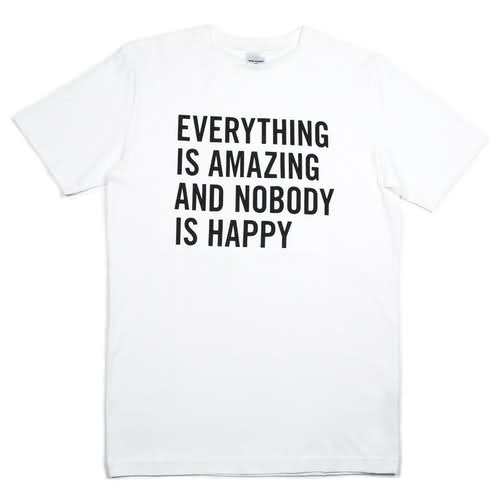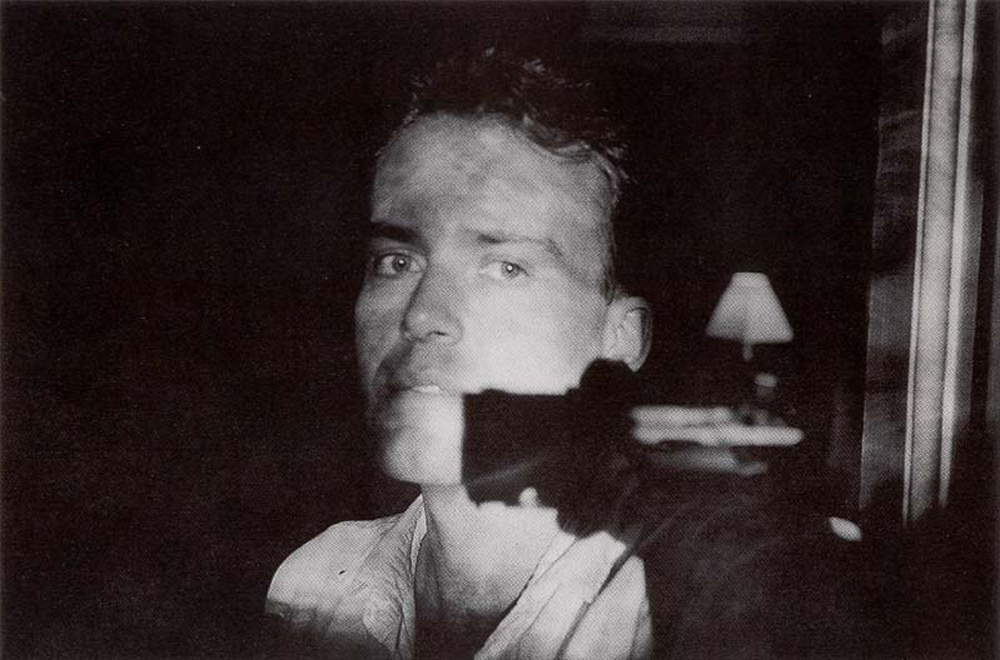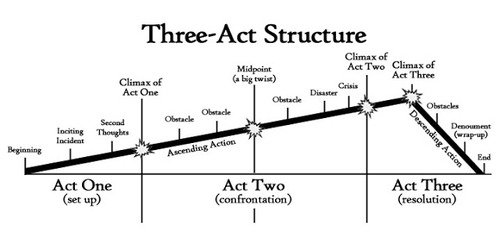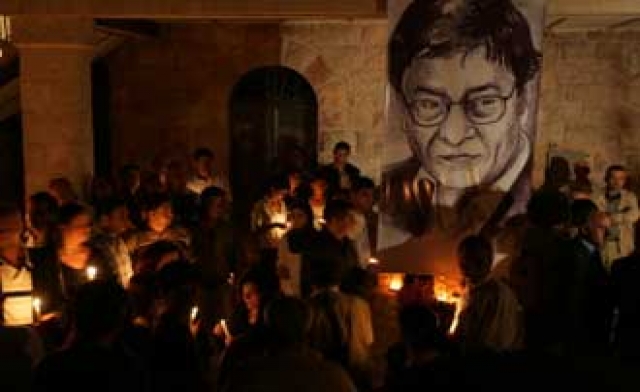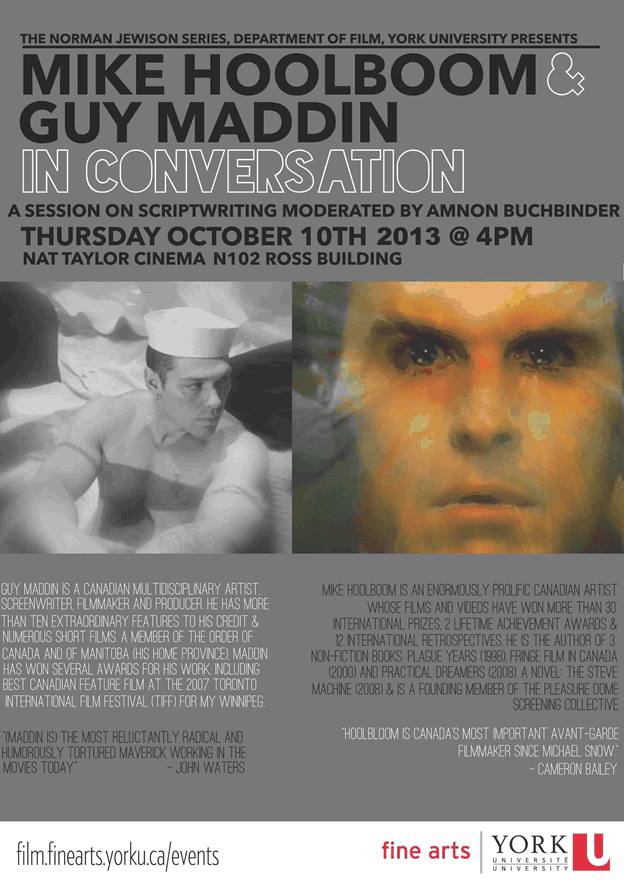(Talk at York University, Oct. 10, 2013)
Beginnings
One of the wonderful things about introductions is that it relieves the pressure of beginnings. Where do we begin and when will it ever end? Fundamental questions of cinema. Today’s session, well, at least from this end of the stage, is about how things begin. I think that’s what people mean when they use the word “script.” How do I begin? Where do I start? Where’s my script?
First Cut is the Deepest
Because we’re in a school, because we’re in a place where we never have to stop pretending that we’re learning all the time, I thought I’d lay down these two observations. They sound like rules, axiomatic truths. If you take nothing else away from me, I’m hoping only that you could remember, that as Steven Georgious aka Cat Stevens wrote: “The first cut is the deepest.” All moments in making a movie are not created equally. They’re all important, but the most important moment, at least for me, is the first one. You can do a thousand things right. But if the first step is backwards, or sideways, if the first step is made out of fear, or out of an attempt to make the director a large and important person, the project is doomed. Usually. Most of the time. Most of the time most projects don’t work out perfectly, and so often it’s because of the first step. Every step is important, but every step is not equal. Oh baby we know, the first cut, is the deepest.
And the second axiomatic truth that Stephen George the Cat wanted to sing before he turned his back on the world of success, is that the way you do something, changes that something. The way you walk changes the path. The way you make your movie, changes what your movie is. It’s not good or bad that you’re going to use an ipad to shoot your feature film. But it’s going to change what that feature is. Not just what it looks like, but the thing itself. You want to write a script, one draft after another, a thousand pages long, detailing every shot, and every variation? Super. Or you want to shoot the whole film two blocks from where you live because the map of your neighbourhood, that lives inside your pelvic floor, that lives inside every part of your body, the map of the outside has become the map of your inside, and that is your script. Whether you turn your body into a living script, whether you put every angle of every shot on paper before you execute, there’s no right or wrong, but the way you do it, changes what you do.
So I’d like to share with you a script, or part of a script, for a movie I made ten years ago called Rain.
Jack (show pictures without sound)
My sister had just given birth to a boy named Jack, and you know how it is when someone close to you goes to Morocco for the first time, it’s like part of you has gone to Morocco with them. When someone close to you gives birth, it’s like you have a second chance. Hanging out with my nephew changed the way I saw the world. This change of perspective, this change of views, was the first cut. My nephew Jack helped me to see the world like he saw the world. I started watching movies differently for instance. All movies became science fiction. They were all projections of a future that my nephew would one day live in. He was going to wear those clothes, that expression on his face, he was going to fall in love like that, get angry like that, get sad like that.
Movies were filled with behavior models. I was struck by this one, for instance. I came across it by chance. Perhaps I could offer this to you as a question. Could a script, the writing of a script, involve chance? Could it have chance as the central piece, the central character even?
Stolen Pictures
These pictures are not made by me by the way, and this was also important. Because it was clear, as I hung out with Jack, that he didn’t create the world he lived in. He was borrowing language from me, from everyone around him. He was borrowing his emotions, his gender technology, he emotional technologies. He was learning how to be a person by receiving impressions, sensations, hand-me-down experiences. And then he was processing these hand-me-downs in his own way. I wanted to take these motion picture futures, the one that had staked a claim on the way he was going to behave, and turn them a little, so they would sing a different kind of song to him. All I wanted to do was tell bedtime stories, the ones laid out before he went to sleep each night. Then I stumbled upon these pictures, which were filled with noise and distraction on the soundtrack. They are pictures that are being used to sell a product, to sell an image, and a certain kind of music. It’s not unusual. In capitalism, it can be difficult to create a picture that isn’t selling you something. And I used these pictures as a script. I followed these pictures, according to the turn I had made with my nephew.
Picture Scripts
Some scripts are not made out of words, they are made out of pictures. In 1994 Douglas Gordon took a film by Alfred Hitchcock called Psycho and slowed it down a lot. He called it: 24 Hour Psycho, which has become a well known gesture in the art world, it brought him the Turner Prize and global attention. He didn’t change the movie in any way, except for slowing it down, which of course changed everything. His script was the original movie by Alfred Hitchcock. And of course this same movie was remade in 1998 by Gus Van Sant, who offered, or reoffered, an exact shot by shot reconstruction of the original. Once again, the movie, the original movie by Hitchcock was the script.
Collage
Sometimes the script arrives not as a single received picture, but as a collection of pictures. Some artists create an archive of shots or scenes that already exist, hoping to create their movie out of that archive.
This is how collage artist Bruce Conner worked: “I snip out small parts of films and collect them on a larger reel. Sometimes when I tail-end one bit of the film onto another, I’ll find a relationship, that I would have never thought about consciously – because it does not create a logical continuity, or it does not fit my concept of how to edit a film.” He’s talking about accidents, about chance operations, and the joy of materials. Do you think you could create a script out of joy? The joy of materials.
The traditional way to understand scripts is something like painting. There’s a blank page, an empty canvas, and then you fill it with marks. But Connor, and others who work with found footage, reimagine the script as sculpture. You have this mass of material, and then you’re going to cut a figure out of it. You start with too much, and the too muchness is the received opinions, the second hand ideas, the great wash of internet happiness. And then you begin to cut into it, you make it less, condensed, refined. Out of the block of marble you cut out a face. You reveal a face. The scissors you use to make that cut is called the script. And the first cut is the deepest.
Exam
The word script is from the Latin scriptum, meaning to write. In our times, the British have developed a usage that seems germane here, in a place where students are busying studying, and then being judged on the results of that studying. The word script in England also means a student’s written answers in an exam. Those exam answers are called a script. What do you do before an exam? You prepare, so that before you walk into the door you already know the answers. In general, most of the time, an examination is not the place where you improvise, where you make it up as you go along.
Prophecy
The usual meaning of the word script, of the act of scripting, is to make a preparation, is to lay down the lines so that you know where you’re going. It’s like an act of prophecy, I hold up my sheet of script paper and I know what’s going to happen in the future. In psychoanalysis they call this omniscience. The ability to know everything. Here is the shrink theorist Michael Eigen speaking about omniscience, “It is difficult to overestimate the role omniscience plays in deadening one’s capacity to experience.” In other words we don’t feel what we feel, we keep ourselves from feeling with our scripted answers. He goes on, “If one knows what is going to happen ahead of time, one does not have to experience it.” (The Psychotic Core by Michael Eigen, 1986 p. 320) I wanted to put to you this question. Is your desire to create a script a way to know beforehand, to study before the exam of the shooting, to demonstrate your omniscience. “Of course I’m a filmmaker, I have a script.” Here is genius British child psychologist Adam Phillips on the question of predictions, of knowing what’s going to happen before it happens. As usual, he is more interested in asking questions than providing answers. As if the role of authority, as if the role of the writer, were not to tell you what to think, but to provide you more space in which you might come up with your own ideas, your own inventions. Here is Adam Phillips: “What would it mean to suspend one’s wish for prediction which, like all defenses, (that’s an interesting word to use isn’t it? Defenses. Studying for an exam, or the act of writing a script, can be seen as a defense), like all defenses it is a preemptive strike against the future? And what is that might make a person ‘deaden’ their capacity to experience and live as though emotional life needed to be gotten rid of?” (The Electrified Tightrope by Michael Eigen, edited by Adam Phillips, pg. xiii)
Dinner
What is the purpose of creating a script? Is it to have the experience before it happens. I don’t want to taste my dinner, I want to write about it so that the taste won’t surprise me. In other words: I’m afraid to feel hunger, or I’m afraid to feel the immensity of my appetite, how very large, how endless my appetite actually is. I’m worried that my appetite will eat me. Because I’m afraid of my emotions, of what I might feel, I want to contain them, I want to create a container, because the container keeps me in the realm of what I already know. And the container, in the dominant habit pattern of movie making, is the script. It’s a contract against feeling. Or at least: it could be. So my question to you is: is it possible to use scripts in another way. To do something else?
Play clip of Buffalo Death Mask 3:10-6:45 (3.5 minutes)
Buffalo Death Mask
What I wanted to do with this dreamy, slowed down, in-camera superimposition footage, was simply to show it, to share it, straight up. But when I played it for friends they assured me that it didn’t mean a thing. They were only pictures, who was this face, who does this hand belong to? Make me feel something, they told me. What I saw, or what I imagined I saw, was a body moving towards death. As someone who edits material I have a key to the secret life of faces, by slowing down or speeding faces up, I gain access to their secret life. I can see a beautiful face turn into a monster, and into a little child, and into a corpse, in just a second or two. It’s amazing how much our faces are showing all the time. But in order to make the footage clearer, to convey to strangers what I felt while I was watching, I needed to add words.
How to find these words? I like to research an area, take in a historical moment. So for these pictures I re-read The Beautiful Room is Empty by Edmund White and To the Friend Who Did Not Save My Life by Hervé Guibert and Heaven’s Coast by Mark Doty, great, heaving novels of anguish and accusation, all of them written in the first blush of the AIDS crisis.
Rewriting
I’d like to make a quick sideways step, which will probably sound strange. I’m not a Jesus person, but there was this thing called The Jesus Project, that undertook a very rigorous examination of the new testament in the bible, and they found that the writers: Mathew, Mark, Luke and John, lived many years after jesus died. In other words, they weren’t simply transcribing events they had witnessed. They wrote their words with the old testament open beside them, these four books or chapters were rewritings, reversionings of material in the old testament. The 12 tribes wander fourty years in the desert, Jesus goes to the desert for 40 days. It’s a rewriting, an echo.
It is possible to imagine, as some postmodern literary critics do, that all of literature is a continual rewriting of what has gone before. When writing a script, no matter what kind it is, you almost always have someone else’s words in your head. That’s what being inside a language means. Because we don’t invent the language we use, it doesn’t originate, it doesn’t start here. It flows between us, right? So it’s very helpful to know whose words are already in your head, whose words are ghost writing you.
I guess I’m arguing that the script is always a rewriting, a reworking, of something that already exists.
Copy
One of the painful ways that scripts are used, is to copy dominant forms. You can read for instance scripts filled with death, by someone who has never experienced a close friend die. So how do you think death is going to appear in their script? As something abstract and far away, as an idea. The script is often used to borrow someone else’s authority. I’m so small and insignificant, but now that I’m working on my zombie movie, I can cover over those feelings. How could we use the script to find roots for our own experience? Without roots in our own experience, the pictures just blow away like dandelions, like page full of this and thats on Instagram or Pinterest. It’s just more stuff in a world already too filled with stuff. It’s like eating a meal that someone’s already had.
There’s a tension, between echoing words and tropes and ideas that have gone before, and simply repeating them, like a dutiful soldier. So many scripts look like they’re just following the marching orders of movies already made. It’s the tendency, the habit. I like that, so I want to copy it.
This question of copying is related to a unique problem that exists I think for everyone in the room right now. There is too much to see, there are too many movies being made, there are too many shows to attend. How can your movie make any difference in that deluge, that avalanche? I believe it’s by having roots in your own experience.
Darwish
I’d like to share with you the words of someone who is widely regarded as the most important Palestinian poet, I think he is one of the most important voices speaking in this time. His name is Mahmoud Darwish. He is in Lebanon, in Beirut, and the Israelis have invaded, and the bombs are dropping day after day after day. And there are snipers in the street. It’s a civil war and it goes on for years. He writes this book in August 1982, as the bombs are dropping. What would you write when your neighbours, your friends, are dying every day?
“I walk down the street exactly in the middle (there are a lot of sides in this conflict, but Darwish is determined to walk in the middle, as if he could find a middle way), not caring to know where I’m going. As if I were sleepwalking. I don’t come out of anything and I don’t come into anything. But the rage in my conflicting emotions rises higher than the roar of the jets, which I ignore. (do you think it’s possible? that he can ignore the roar of jets?)
We did not understand Lebanon. (who is we?) We never understood Lebanon. (this is what he writes while the bombs are dropping) We will not understand Lebanon. We will never understand Lebanon. (He summons the past (we did not), the present (we will not), and the future (we will never).
We saw in Lebanon only our own image in the polished stone – an imagination that re-creates the world in its own shape, not because it is deluded but because it needs a foothold for the vision. Something like making a video (here he compares Lebanon – the place, the experience that cannot be understood – to making a video): we write the script (this is what he says, the script) and the dialogue; we design the scenario; we pick the actors, the cameraman, the director and the producer; and we distribute the roles without realizing we are the ones being cast in them. When we see our faces and our blood on the screen, we applaud the image, forgetting it’s of our own making. And by the time production goes into postproduction, we are only to ready to believe it is the Other who is pointing at us.” Memory for Forgetfulness by Mahmoud Darwish, Berkeley and Los Angeles: University of California Press, 1995
